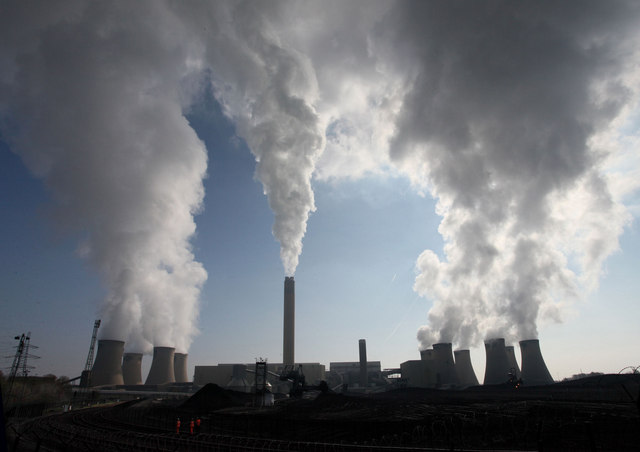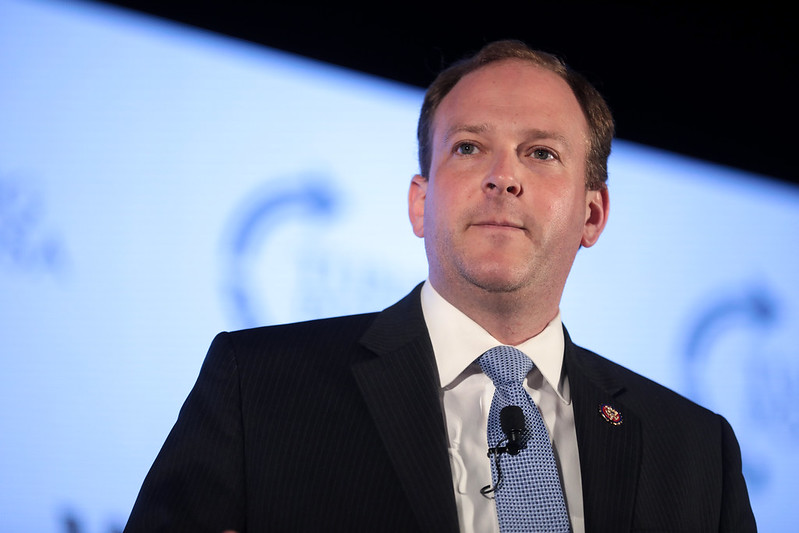The UK government must urgently formulate new policies to bridge the “significant gaps” between its plan to reduce greenhouse gas emissions and its legally-binding targets to tackle climate change, a panel of experts has warned.
The Committee on Climate Change (CCC), the government’s official climate policy advisor, said in a report analysing the UK’s clean growth strategy that it “does not go far enough” to meet commitments under the legally-binding Climate Change Act and the Paris Agreement.
The committee called on the government to “take urgent action” if it is to achieve its emission targets in the 2020s and 2030s and eventually reduce emissions from at least 80 percent below 1990s levels by 2050.
The CCC said that “even if delivered in full”, existing and new policies would fail to meet the interim goals set by the fourth and fifth carbon budgets “by a significant margin”.
Chairman of the CCC Lord Deben said the government will have to “put flesh on the bone” of existing and new policies to explain how it is going to close that gap.
CCS technology necessary to meet 2050 targets
While the UK government is under pressure to deliver a robust framework for climate action, Lord Deben told DeSmog UK that the oil and gas industry also has to “step up to the mark” and become “a proper partner” in delivering on the country’s climate commitments.
One of the ways the oil and gas industry is expected to support the government’s efforts to reduce emissions is by heavily investing in carbon capture and storage (CCS) technology — the process of sucking carbon dioxide emissions from power plants and other industrial sources and storing it underground.
CCS technology is yet to be proven at scale in the power sector, despite both the CCC and UN agencies considering it necessary to achieve emission reductions in line with domestic targets and the Paris Agreement.
The CCC report stressed that without CCS technology, the government’s plan to reduce emissions by at least 80 percent below 1990s levels by 2050 will be “highly challenging” and “much more costly”.
The committee added that the £100m of funding the government has earmarked for CCS innovation is “not commensurate with [the technology’s] importance”. The pledge also falls short of the previous £1bn grant the UK government had earmarked to develop the technology, scrapped in 2015.
David Joffe, acting head of carbon budgets at the CCC, told DeSmog UK that the government had to invest “much more than £100m and at least hundreds of millions” in order to deploy the technology at scale.
“This is not about spending extra but about spending wisely,” he said, adding: “We need to start doing things now that we will have to do later anyways”.
Joffe said deploying CCS technology at scale would require action from both the government and the industry with ministers having to provide the framework which will underpin investments for the private sector.
Lord Deben said the oil and gas industry had caused “disappointment” in recent years because of its lack of investment in CCS technology, however.
He warned it was “dangerous” for private companies not to take the issue more seriously and said he expected “very much more investments”.
“Where there is a partnership with government, it would not be acceptable for the industry to think that government would pay for it all. If companies want to speak about divestment, they need to show they are taking the move away from fossil fuels seriously,” he said.
Ed Matthew, associate director at the environmental think tank E3G, told DeSmog UK that although the oil and gas industry had “the power and the might” to transform our economy and energy system “they are standing in the way of meeting our climate targets”.
Matthew denounced the industry’s “pathetic” levels of investments in clean technologies and said companies had “a moral responsibility to massively up their game”.
He also warned that the government’s own emission reduction pledges were “not bold enough” and risked being “hopelessly off target” to meet targets set by the Paris Agreement.
“The government is moving green credentials to the centre of its rhetoric at the moment but what really counts is whether they are going to deliver the investment and regulation to meet the Paris Agreement and that needs a sea change,” he said.
In the clean growth strategy, the government set out an ambition to develop CCS at scale in the UK in the 2030s. But the CCC called on ministers to speed up the timeline in deploying CCS by kick-starting the process this year in order to see substantial progress in the 2020s.
The government is due to produce a development pathway for CCS in the first half of this year and the committee is expecting to see a more detailed programme on how it plans to roll out the technology.
Electric cars and energy efficiency
The report also pointed to transport and energy-use as sectors in which the government needs to make “urgent progress”. This includes improving energy efficiency standards of new buildings and ramping up plans to phase out sales of petrol and diesel cars and vans by 2040.
The CCC urged the government to increase its ambition over the sale of ultra-low emissions vehicles. While the clean growth strategy calls for 30 to 70 percent of car sales to be ultra-low emission vehicles by 2030, the committee said that number needed to be increased to at least 60 percent if the UK is to hit its target of 100 per cent of ultra-low emission vehicles by 2040.
Measures regarding the phase out of petrol and diesel vans and emissions reduction plans for HGVs were also deemed to be insufficient. And while the charging network has to continue to be rolled out across the UK, Lord Deben said more information — such as where electric cars can be charged — had to be made available for drivers switching vehicles.
Richard Black, director of the Energy and Climate Intelligence Unit (ECIU) thinktank, said in a statement that ministers now had “little time for inquiries, reviews and consultations”.
There is “no shortage of good ideas” in the strategy, he said, but “they’re going to have to put new policies in place fast”.
Subscribe to our newsletter
Stay up to date with DeSmog news and alerts







